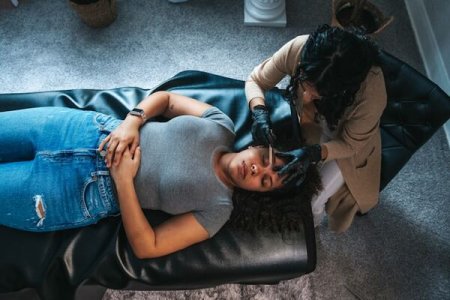
Federal health officials from the Centers for Disease Control and Prevention (CDC) have disclosed that three women contracted HIV after undergoing "vampire facial" procedures at an unlicensed medical spa in New Mexico. This incident marks the first documented cases of HIV transmission through cosmetic procedures involving needles, raising significant concerns about the safety and regulation of such treatments.
The CDC's Morbidity and Mortality Report, released last week, detailed an extensive investigation into the clinic spanning from 2018 to 2023. The findings uncovered alarming practices, indicating that the spa had reused disposable equipment intended for one-time use. While HIV transmission through contaminated blood via unsterile injections is a known risk, this report marks the first documented instance of probable infections associated with cosmetic services.
Numerous cosmetic treatments, including Botox injections and fillers, rely on needles for administration. The "vampire facial," also known as platelet-rich plasma microneedling, involves drawing a client's blood, separating its components, and then using tiny needles to inject plasma into the face to rejuvenate the skin. The report underscores the potential risks inherent in such procedures, as well as the importance of stringent infection control measures.
The investigation into the New Mexico spa began in the summer of 2018 after a woman in her 40s tested positive for HIV despite having no known risk factors. She reported exposure to needles during a procedure at the clinic earlier that spring. Following the investigation, the spa was shuttered in the fall of 2018, and its owner faced legal prosecution for practicing medicine without a license.
The report emphasizes the critical need for infection control practices at businesses offering cosmetic procedures involving needles. It highlights the challenges posed by poor record-keeping, which hampered the investigation's progress. Moving forward, the report calls for improved record-keeping practices to facilitate swift action in similar cases and ensure the safety of clients undergoing cosmetic procedures.




